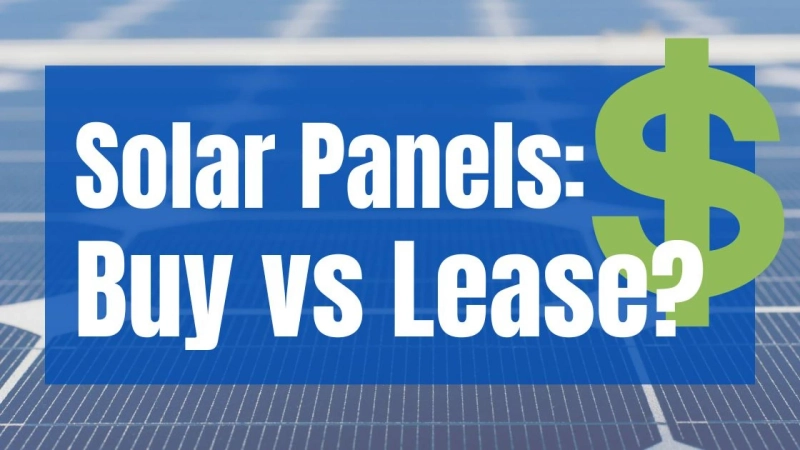.Choosing between leasing and buying solar panels is a significant decision with long-term financial implications. Both options offer unique benefits and drawbacks, so understanding them thoroughly is crucial for making an informed choice.
Leasing Advantages:
Low upfront cost: Makes solar energy accessible to a wider range of individuals.Predictable payments: Simplifies budgeting and financial planning.Maintenance-free: No need to worry about upkeep or repairs.Potential for tax benefits: Depending on local regulations, you may be eligible for tax credits or deductions.Upgrade flexibility: Allows you to switch to newer technology at the end of the lease.Leasing Disadvantages:
Higher long-term cost: Overall cost of ownership is higher compared to buying due to accumulated lease payments.No system ownership: You don't own the panels and cannot sell them or take them with you if you relocate.Limited control: You may face restrictions on how you use the system and may not be able to make modifications.Potential for hidden fees: Carefully review the lease agreement to avoid any unexpected charges.Buying Advantages:
Lower long-term cost: Over time, you save money on your electricity bills compared to leasing.System ownership: You own the panels outright and can sell them or take them with you when moving.Full control: You have complete freedom to use the system as you please and can make any modifications you wish.Increased home value: Solar panels can significantly increase the value of your property.Potential for tax benefits: Similar to leasing, you may be eligible for tax credits or deductions based on local regulations.Buying Disadvantages:
High upfront cost: Requires a substantial initial investment compared to leasing.Maintenance responsibility: You are responsible for maintaining and repairing the system, which can incur additional costs.Less predictable monthly payments: Your electricity bills may fluctuate depending on your energy consumption.Risk of technological obsolescence: Solar technology is constantly evolving, and your system may become outdated over time.To know more about then visit the blog - Leasing vs. Buying Solar Panels.


